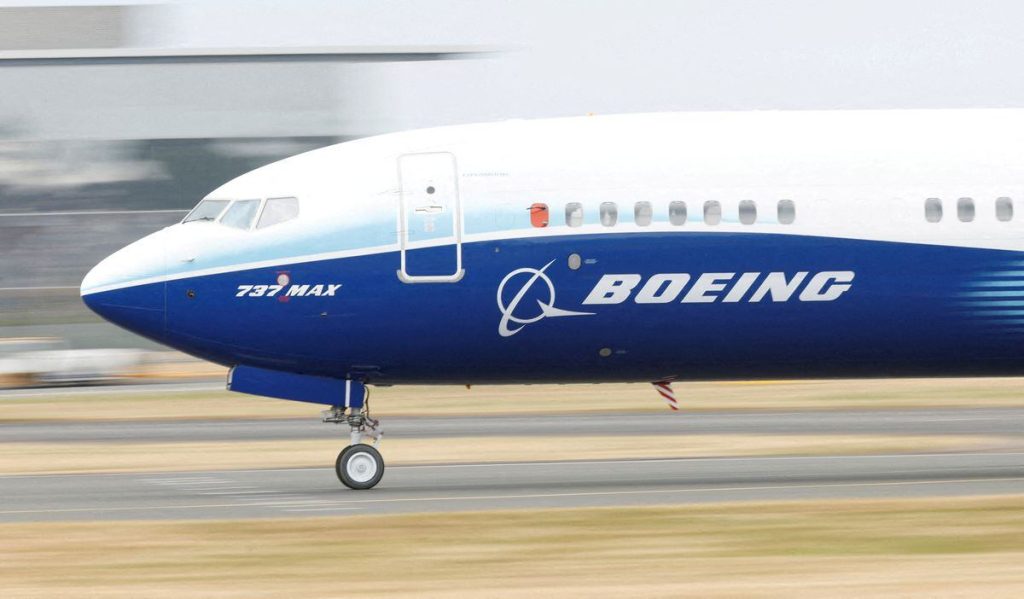(Reuters) -Boeing Co has embarked on deeper-than-expected cuts in its strategy ranks, halving the number of planners working within key divisions as it refocuses energies on tackling industrial pressures, people familiar with the matter said.
The move is the latest evidence of renewed industrial priorities after Boeing (NYSE:BA) on Monday named Stephanie Pope to the new role of chief operating officer, putting the 51-year-old Global Services head in line to succeed Dave Calhoun as CEO.
Boeing has been grappling with supply disruption at a time when it is saddled with almost $40 billion of debt stemming from the COVID-19 travel slump and an earlier 737 MAX safety crisis.
But some critics worry the increased operational focus is diverting attention from Boeing’s long-term future at a crucial stage for the industry, with redundancy notices due to go out to affected strategists this week, according to the sources.
In November, Boeing said Marc Allen, who had once been seen as a future CEO, would step down as chief strategy officer with part of his planning team redeployed to divisions.
In a Nov. 16 memo, Calhoun said this involved “enabling and empowering our business units”, with strategists “directly joining the business units they support”.
However, sources said those units were facing cuts of at least 50% in the number of strategists who work day to day inside Boeing Global Services and Stan Deal’s Boeing Commercial Airplanes. The total number of employees affected was unknown.
In a sign of the speed of the shake-up, some strategists are being told not to go back to work when the 60-day notices land, though they will receive job search advice, the sources said.
At Defense, plans are evolving more slowly as it first combines the division’s strategy and business development, but cuts of 50% or more are also expected there, the sources said.
Boeing confirmed the internal Defense combination but declined to comment on the number of job cuts across the company. Sources say it has some 200 strategists in total, most of whom are embedded inside divisions rather than headquarters.
“We are directly aligning our strategy teams to the business units they support,” a spokesperson said, adding this was part of broader steps taken over several years to simplify corporate structure and focus resources on the business.
Boeing shares rose 1.4% on Monday.
FUTURE TECHNOLOGIES
Strategy is a perennial chess game in aerospace due to the company-sized bets and time needed to master new technology.
The decision to cut core strategy teams has already drawn criticism from analyst and long-time Boeing skeptic Richard Aboulafia. On Monday, he said this and Pope’s appointment favor the harvesting of past investments over future technologies.
“If it doesn’t have these things, how does it know where it wants to be in five or 10 years?” he said.
Not everyone was as pessimistic. One source familiar with the company said its divisions had long seen the strategy department as a costly rival and predicted it would gradually reshape itself.
Another argued company-wide choices about new technologies could be coordinated the CEO level as they had in the past, without the need for a standalone strategy department.
Jefferies analyst Sheila Kahyaoglu on Monday welcomed the greater operational focus visible in Pope’s appointment.
The shake-up comes as the industry studies its crystal ball on the future of single-aisle jets, the aerospace cash cow, marking one of the biggest strategic choices for a generation.
Although successor models are over a decade away, Europe’s Airbus has already aired a key component of its potential strategy by suggesting it may request public support – a mechanism that helped trigger a 17-year trade war with Boeing.
Calhoun has tempered expectations of a new Boeing airplane until the mid-2030s, saying it must be 20%-30% more efficient. Shares are up 30% this year as Boeing conserves resources in favor of paying off $39 billion in debt.
Even so, sources say it never fully halted work on a 737 replacement. But Boeing’s storied Product Strategy team will now sit under Product Development, which oversees the pipeline of existing and planned future projects and tomorrow’s production systems, Boeing confirmed in response to a Reuters query.
“One hopes the strategy changes are not about abandoning the future of the company in terms of the need to develop new programs (and) respond to the changing environment, particularly decarbonization,” said Agency Partners analyst Nick Cunningham.
“On the other hand, you could argue that it’s just realistic.”



